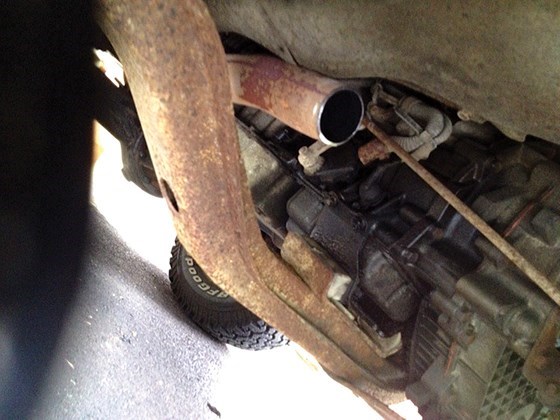‘Cat’ burglars are on the prowl again in North Vancouver – particularly in neighbourhoods above Highway 1.
North Vancouver RCMP are warning of a dramatic increase in catalytic converter thefts in the District of North Vancouver.
Since May 12, there have been 25 thefts of the catalytic converters, with neighbourhoods including Cleveland, Grousewoods, Handsworth and Lynn Valley among the hot spots targeted by thieves.
Most vehicles being targeted are Hyundai’s Tucson and Santa Fe SUVs.
Police say they don’t know who’s responsible, but it’s likely to be a group of thieves, possibly acting together.
“Because it’s so frequent, it’s an indication that it is probably a group of people” that are committing the thefts, said Const. Mansoor Sahak, spokesman for the North Vancouver RCMP.
“Obviously they’re selling them to make money. And it’s profitable, which is why they’ll continue doing it.”
North Vancouver RCMP are appealing to the public – particularly residents who live in the targeted neighbourhoods – to contact police if they have any video surveillance that may have captured the cat burglars at work.
“As is often the case, our biggest investigational assets are vigilant community members,” said Sahak. “Surveillance footage is an immensely helpful resource that we lean on for identifying suspects and the patterns that can lead to an arrest. If a thief knows they’re being recorded and the whole neighbourhood is on the lookout, they’ll be more likely to change their plans.”
As the name suggests, a catalytic converter – which is part of the exhaust system – converts many of a vehicle’s more harmful exhaust pollutants into less harmful emissions.
Most catalytic converters are stolen with the intention of selling the parts to a recycling facility for the small amount of valuable metal they contain.
Two years ago, the province changed the regulations for metal dealers and recyclers to require them to report each sale of catalytic converters, including seller information, to police.
So far, however, that has yet to have much of an effect.
“Obviously, we’re not seeing that effect right now as we speak,” said Sahak.
A new catalytic converter costs between $100 and $200, but having one professionally installed can ding a vehicle owner for many more hundreds of dollars.
With the right tools and technical knowledge, a catalytic converter can be cut out and stolen quickly – “30 seconds flat in some cases,” said Sahak. “However, this is a noisy process. If you find yourself waking to the sound of power tools at an ungodly hour and spot a suspicious person underneath a car, please don’t hesitate to give us a call.”
That’s what happened last summer, when a sharp-eyed citizen who spied three people under a car in the Grand Boulevard area at 1 a.m. called police, leading to the arrest of two men and one woman.
At the time, the trio were using a saw to cut out the vehicle’s converter and had already hit several cars nearby.
One program that’s been launched in some other Lower Mainland communities involves etching vehicle identification numbers (VINs) – a 17-digit code unique to every vehicle – directly onto catalytic converters to prevent them from being sold illegally. That hasn’t been started yet on the North Shore, but Sahak said he’s hopeful it may be in the future.
In the meantime, police suggest parking inside a home garage, if possible, using motion sensing exterior house lights if you park in your driveway, parking in a well-lit area and keeping an eagle eye on your neighbourhood.



